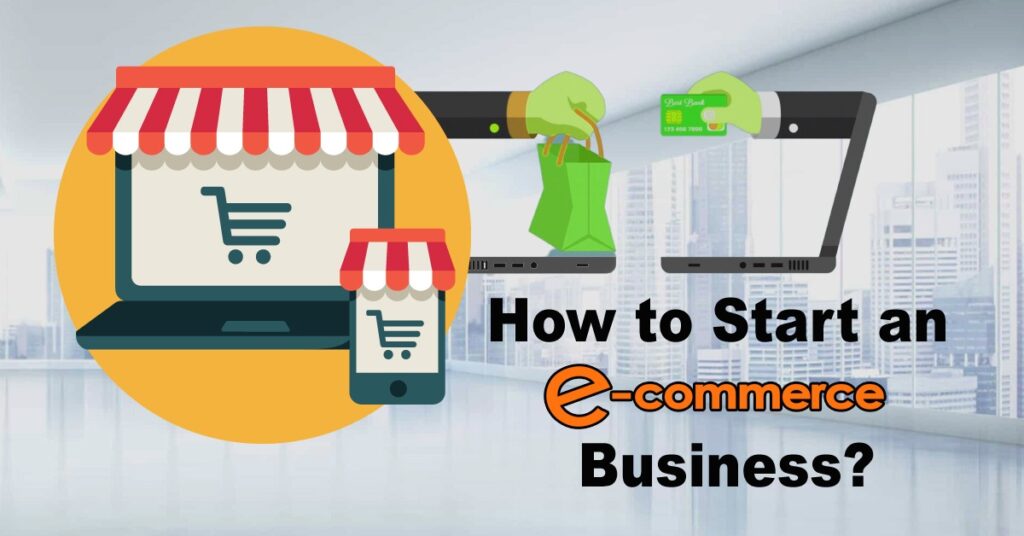Starting an e-commerce business as a newbie can be hard. Since there are an estimated 12 million to 24 million e-commerce sites across the world, making your mark on the Internet can be overwhelming.
To help newbies start their e-commerce business and keep it stable, we are going to provide a comprehensive guide in this blog. We will discuss what e-commerce actually is and how you can start your business in this field. Let’s start.
Table of Contents
What Is E-Commerce?
E-commerce stands for electronic commerce and refers to the buying and selling of goods and services online. It is conducted through websites and mobile apps, both usually developed by an eCommerce app development company online marketplaces, and social media platforms.
What are Popular E-commerce Models?
There are four main types of e-commerce models that businesses use: B2B (Business to Business), B2C (Business to Consumer), C2B (Consumer to Business), and C2C (Consumer to Consumer). Each model provides unique opportunities for businesses, depending on the type of product or service they offer.
B2B
B2Binvolves companies selling their products or services directly to other companies. This type of model is often used when a business needs large amounts of specialized items or components that are not available from consumer markets.
B2C
B2C involves businesses selling their products directly to consumers. This model is commonly used by retail stores and online marketplaces like Amazon and eBay.
C2B
C2B involves consumers offering services or products directly to businesses for sale or licensing. This is often done through freelance sites such as Upwork and Fiverr where individuals can offer their expertise or services for a fee.
C2C
C2C involves individuals buying and selling goods between each other without any direct involvement from the company itself. eBay is one example of a C2C marketplace where individual sellers can list items for sale on the platform at no cost.
Starting an e-commerce business as a newbie can seem daunting – but it doesn’t have to be. Here are some key steps you should take when getting started with your new venture:
Find product opportunities and choose what to sell
Research product opportunities thoroughly before making any decisions. Look at trends in the industry, customer needs, competition analysis, etc., before deciding what products or services you will offer.
Thoroughly research your competition and write a business plan
Before launching your business, take some time to analyze who your competitors are and what they’re doing right or wrong. Use this information to create a detailed business plan outlining your goals and strategies for achieving them.
Research Your Potential Customers
One of the most important things you can do when launching your e-commerce business is to research your potential customers. Knowing who your target market is will help you decide what types of products you should offer and which strategies work best for marketing them. Take some time to think about who would be interested in the items you plan on selling, then create personas for those customers so you know how best to reach them.
Work on Sourcing Products
Once you have identified your target audience, it’s time to start sourcing products for them. You can choose from a variety of options such as dropshipping, manufacturing, or even creating products yourself if that’s something that interests you. Whichever path you choose, be sure to do enough research so that you can ensure the quality and reliability of the products before offering them for sale in your store.
Be a Trendsetter
As an entrepreneur, it’s important to stay ahead of the curve when it comes to trends in e-commerce businesses, especially if they relate directly to your products or services. Keeping up with industry news and staying informed about what other successful e-commerce businesses are doing will help give you ideas on how best to market and promote your own brand and offerings—and gain an edge over competitors in the process.
Select a Reliable Distribution Network and Use Convenient Payments Methods
When selecting a distribution network for your business—such as shipping carriers—it’s important to go with reliable companies so that orders are processed quickly and delivered on time without any issues or delays. Additionally, convenient payment methods like PayPal or Stripe should be integrated into your store so customers can complete transactions quickly without worrying about security issues or hidden fees down the line.
Choose The Right Name and Invest in Brand Advertisements
Last but not least, it pays off big time when entrepreneurs put thought into choosing the right name for their business before launching their website or store. This will help set up branding efforts down the line while also establishing trust between customers and owners early on in the process; after all, people buy from brands they trust. Additionally investing in brand advertisements whether online or offline helps build awareness about your product or service offerings among potential buyers.
Tips for Starting an Ecommerce Store
Once you’ve decided which eCommerce model is best suited for your business needs it’s time to start thinking about how you’ll launch your own online store. Here are some tips that can help get you started on the right foot.
Forget about year-one profitability
Don’t expect too much out of your first year when it comes to profit margins, it will take time until you start seeing returns on investment so focus on getting your name out there instead of immediate profits.
Know Your Target Audience
Knowing who your target market is will help determine what product or services should be offered so make sure you do research into who would actually want or need your offerings
Sell an in-demand product
Start by offering something that already has consumer demand behind it—this way people will already be searching for it so you don’t have too much legwork ahead of you.
Experiment with marketing and advertising:
Try different marketing strategies such as social media campaigns and influencer outreach—these can help spread awareness and generate interest in what you’re offering;
Invest in outreach and link building:
Quality content is key but so is building relationships with influencers and other industry professionals—this will help generate leads and increase website traffic organically overtime;
Conclusion
Starting an e-commerce business is very hard due to the high competition – especially for the newbies. However, if you know how to play your cards right, you can make sure that you start an e-commerce business smoothly and keep it running. In the information that we have just shared with you, you can find a complete guide on how you can do it. Make sure to read it out before starting.


